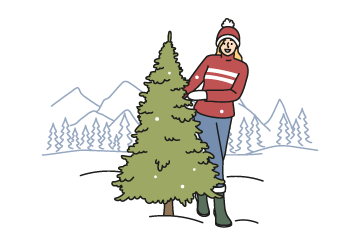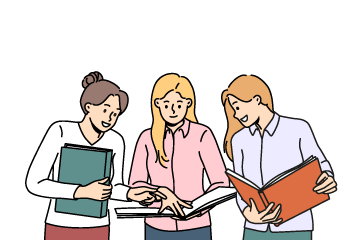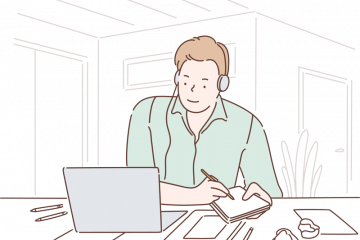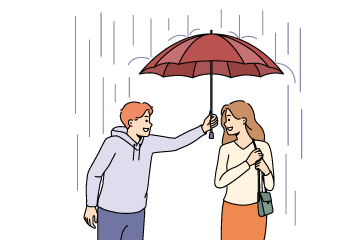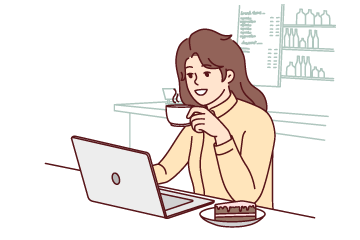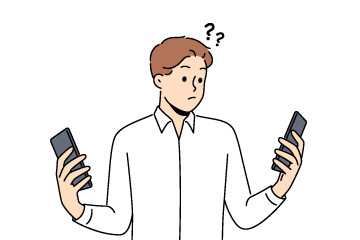Продолжаем говорить о том, что важно запомнить в первую очередь, если изучение английского языка только начинается.
Сегодня рассмотрим глаголы, которые описывают наши планы, действия, а также то, что происходит вокруг. Глагол – обязательная часть любого английского предложения. Вашему вниманию список из 150 самых часто используемых.
Не зубрите глагол просто так. Прочитайте, прослушайте озвучку, повторите несколько раз, посмотрите примеры употребления и составьте свои фразы. Добавьте слова в личный словарь на LingvoHabit и продолжайте тренироваться, добавляя по 2-3 новых глагола ежедневно!
| Слово / Перевод | Перевод | Пример | |
|---|---|---|---|
| achieve достигать | достигать |
| |
| add добавлять | добавлять |
| |
| agree соглашаться | соглашаться |
| |
| allow позволять , разрешать | позволять, разрешать |
| |
| answer ответить , отвечать | ответить, отвечать |
| |
| appear появляться | появляться |
| |
| approve утверждать , одобрять | утверждать, одобрять |
| |
| ask спрашивать , спросить | спрашивать, спросить |
| |
| avoid избегать | избегать |
| |
| be быть , являться , находиться | быть, являться, находиться |
| |
| become становиться , стать | становиться, стать |
| |
| begin начинать , начинаться , начать | начинать, начинаться, начать |
| |
| believe верить | верить |
| |
| break ломать , разбивать , отдых | ломать, разбивать, отдых |
| |
| bring приносить , приводить , привозить , доставлять , принести | приносить, приводить, привозить, доставлять, принести |
| |
| build строить , укреплять , построить | строить, укреплять, построить |
| |
| buy покупать , купить | покупать, купить |
| |
| call звонить , звать , называть , вызывать , звонок | звонить, звать, называть, вызывать, звонок |
| |
| cancel отменять | отменять |
| |
| carry нести , переносить | нести, переносить |
| |
| catch ловить , поймать , успеть (на транспорт) , схватить | ловить, поймать, успеть (на транспорт), схватить |
| |
| change поменять , изменить , менять , обменять , заменить , изменять | поменять, изменить, менять, обменять, заменить, изменять |
| |
| choose выбирать , выбрать | выбирать, выбрать |
| |
| close закрыть , закрывать | закрыть, закрывать |
| |
| come приходить , приезжать , приехать , прийти | приходить, приезжать, приехать, прийти |
| |
| connect подсоединять , соединять | подсоединять, соединять |
| |
| continue продолжить , продолжать | продолжить, продолжать |
| |
| cook готовить | готовить |
| |
| create создавать | создавать |
| |
| cry лить слёзы , плакать | лить слёзы, плакать |
| |
| cut нарезать , резать | нарезать, резать |
| |
| dance танцевать , танец | танцевать, танец |
| |
| decide решать | решать |
| |
| depend зависеть | зависеть |
| |
| develop развивать , развиваться | развивать, развиваться |
| |
| die умирать | умирать |
| |
| discuss обсуждать | обсуждать |
| |
| do делать | делать |
| |
| draw рисовать | рисовать |
| |
| drink пить , напиток | пить, напиток |
| |
| drive вести машину , водить | вести машину, водить |
| |
| eat кушать , есть | кушать, есть |
| |
| end заканчивать , заканчиваться , завершать | заканчивать, заканчиваться, завершать |
| |
| explain объяснять , объяснить | объяснять, объяснить |
| |
| fall падать , снижаться , опускаться , упасть | падать, снижаться, опускаться, упасть |
| |
| fear бояться | бояться |
| |
| feel чувствовать | чувствовать |
| |
| find находить , обнаружить , найти | находить, обнаружить, найти |
| |
| finish заканчивать , закончить | заканчивать, закончить |
| |
| fly летать , лететь | летать, лететь |
| |
| follow следовать , подписаться | следовать, подписаться |
| |
| forget забывать , забыть , забудь | забывать, забыть, забудь |
| |
| get получать , становиться , доставать , добираться , получить | получать, становиться, доставать, добираться, получить |
| |
| give давать | давать |
| |
| go идти , ехать , ходить , ездить , пойти | идти, ехать, ходить, ездить, пойти |
| |
| grow расти , вырастать , выращивать | расти, вырастать, выращивать |
| |
| happen случаться | случаться |
| |
| have иметь , обладать | иметь, обладать |
| |
| hear слышать | слышать |
| |
| help помогать , помочь , помощь | помогать, помочь, помощь |
| |
| hit бить , удариться , ударять , врезаться , стукнуть | бить, удариться, ударять, врезаться, стукнуть |
| |
| hold обнимать , держать , удерживать | обнимать, держать, удерживать |
| |
| hope надеяться | надеяться |
| |
| include включать , содержать | включать, содержать |
| |
| join присоединяться , вступать , принять участие , присоединиться | присоединяться, вступать, принять участие, присоединиться |
| |
| jump прыгать | прыгать |
| |
| keep сохранять , держать , хранить | сохранять, держать, хранить |
| |
| kill убивать , убить | убивать, убить |
| |
| know знать | знать |
| |
| learn учить кого-то , узнавать , учиться , научиться , изучить , учить | учить кого-то, узнавать, учиться, научиться, изучить, учить |
| |
| leave уезжать , покидать , уходить , оставить , уйти , уехать | уезжать, покидать, уходить, оставить, уйти, уехать |
| |
| let позволить , пусть | позволить, пусть |
| |
| lie лежать | лежать |
| |
| listen слушать | слушать |
| |
| live жить , проживать | жить, проживать |
| |
| look смотреть , вглянуть , выглядеть | смотреть, вглянуть, выглядеть |
| |
| lose терять , проигрывать | терять, проигрывать |
| |
| love любить , любовь | любить, любовь |
| |
| make делать , создавать , заставлять , изготавливать , сделать | делать, создавать, заставлять, изготавливать, сделать |
| |
| mean значить , означать , иметь в виду | значить, означать, иметь в виду |
| |
| meet встречать , встречаться , встретить , встретиться | встречать, встречаться, встретить, встретиться |
| |
| move передвигаться , двигать , переезжать , двигаться , движение | передвигаться, двигать, переезжать, двигаться, движение |
| |
| need нуждаться , нужда | нуждаться, нужда |
| |
| offer предлагать | предлагать |
| |
| open открывать , открыть | открывать, открыть |
| |
| order заказывать , приказывать | заказывать, приказывать |
| |
| pass проходить , проезжать , пройти мимо , пройти , передать , сдать | проходить, проезжать, пройти мимо, пройти, передать, сдать |
| |
| pay платить , заплатить , оплачивать | платить, заплатить, оплачивать |
| |
| plan собираться , планировать | собираться, планировать |
| |
| play играть | играть |
| |
| prepare готовить , подготавливать , подготовить | готовить, подготавливать, подготовить |
| |
| produce производить | производить |
| |
| prohibit запрещать | запрещать |
| |
| provide снабжать | снабжать |
| |
| put класть , положить | класть, положить |
| |
| raise растить , поднимать | растить, поднимать |
| |
| read читать | читать |
| |
| receive получать | получать |
| |
| remember вспомнить , помнить | вспомнить, помнить |
| |
| remind напоминать , напомнить | напоминать, напомнить |
| |
| repeat повторять | повторять |
| |
| respond отвечать , отзываться , ответить | отвечать, отзываться, ответить |
| |
| return возвращаться , вернуться , возврат , возвращение | возвращаться, вернуться, возврат, возвращение |
| |
| ride ехать верхом , кататься верхом , кататься , поездка | ехать верхом, кататься верхом, кататься, поездка |
| |
| run бежать , бегать , управлять , проводить , управлять (бизнесом) | бежать, бегать, управлять, проводить, управлять (бизнесом) |
| |
| say называть время , говорить , произносить , произнести , сказать | называть время, говорить, произносить, произнести, сказать |
| |
| search искать , поиск | искать, поиск |
| |
| see видеть , посмотреть , взглянуть , увидеть | видеть, посмотреть, взглянуть, увидеть |
| |
| seem казаться , выглядеть | казаться, выглядеть |
| |
| sell продавать , продать | продавать, продать |
| |
| send отправлять , посылать , присылать , послать , отправить | отправлять, посылать, присылать, послать, отправить |
| |
| serve служить , подавать (еду) , подавать , накрывать на стол , обслуживать | служить, подавать (еду), подавать, накрывать на стол, обслуживать |
| |
| set устанавливать , определить , поставить , разворачиваться (о сюжете) , ставить | устанавливать, определить, поставить, разворачиваться (о сюжете), ставить |
| |
| shout кричать , орать | кричать, орать |
| |
| show показывать , показать | показывать, показать |
| |
| sing петь | петь |
| |
| sit сидеть | сидеть |
| |
| smile улыбаться , улыбка | улыбаться, улыбка |
| |
| solve решать , решить | решать, решить |
| |
| speak говорить | говорить |
| |
| spend тратить , проводить время | тратить, проводить время |
| |
| stand стоять | стоять |
| |
| start начинать , начать | начинать, начать |
| |
| stay оставаться , задержаться , останавливаться , остаться | оставаться, задержаться, останавливаться, остаться |
| |
| stop остановиться , остановить , прекращать , остановка | остановиться, остановить, прекращать, остановка |
| |
| study учиться , учить кого-то | учиться, учить кого-то |
| |
| suggest предлагать , предложить , советовать | предлагать, предложить, советовать |
| |
| support поддерживать , поддержка | поддерживать, поддержка |
| |
| swim плавать | плавать |
| |
| take брать , взять | брать, взять |
| |
| talk разговаривать , болтать , говорить , поговорить | разговаривать, болтать, говорить, поговорить |
| |
| teach обучать , преподавать , учить кого-то , научить , учить | обучать, преподавать, учить кого-то, научить, учить |
| |
| tell рассказывать , говорить , сообщать , называть время , сказать , рассказать | рассказывать, говорить, сообщать, называть время, сказать, рассказать |
| |
| thank благодарить , спасибо , сказать спасибо | благодарить, спасибо, сказать спасибо |
| |
| think думать | думать |
| |
| translate переводить | переводить |
| |
| travel путешествовать | путешествовать |
| |
| try пытаться , пробовать , стараться , попробовать | пытаться, пробовать, стараться, попробовать |
| |
| turn превратить , повернуть , поворачивать | превратить, повернуть, поворачивать |
| |
| understand понимать , понять | понимать, понять |
| |
| use употребить , использовать , воспользоваться | употребить, использовать, воспользоваться |
| |
| visit навещать , посещать , навестить | навещать, посещать, навестить |
| |
| walk гулять , ходить , идти | гулять, ходить, идти |
| |
| want хотеть | хотеть |
| |
| watch смотреть , наблюдать | смотреть, наблюдать |
| |
| wear носить (одежду) , одевать , быть одетым (во что-то) | носить (одежду), одевать, быть одетым (во что-то) |
| |
| win выигрывать , выиграть , победить | выигрывать, выиграть, победить |
| |
| wish желать , пожелать | желать, пожелать |
| |
| work работать , работа | работать, работа |
| |
| write писать , записывать , выписывать | писать, записывать, выписывать |
|
Зарегистрируйтесь или авторизуйтесь на сайте, чтобы добавить 150 базовых английских глаголов в личный онлайн словарик и потренировать запоминание на тренажёрах LingvoHabit!

